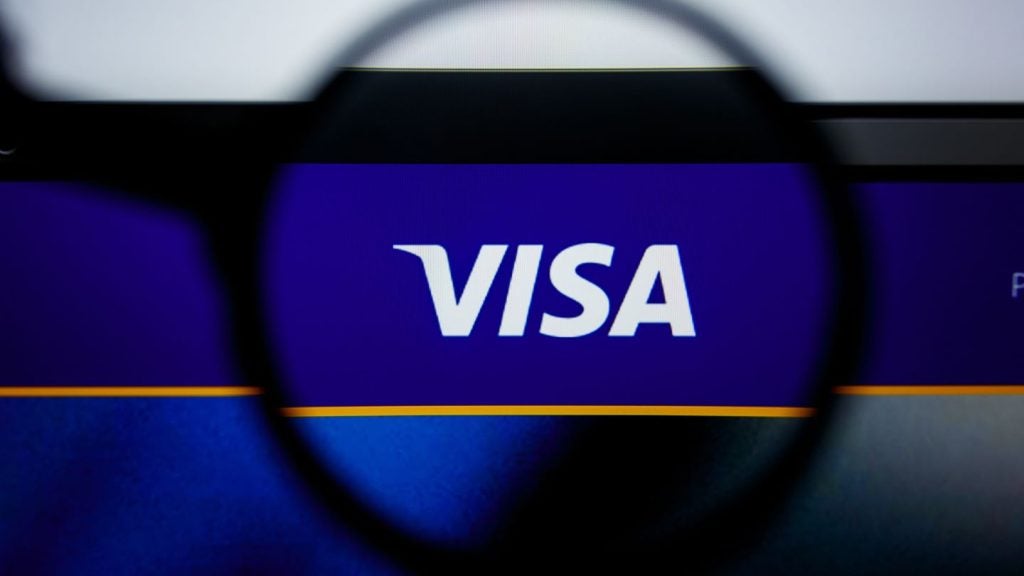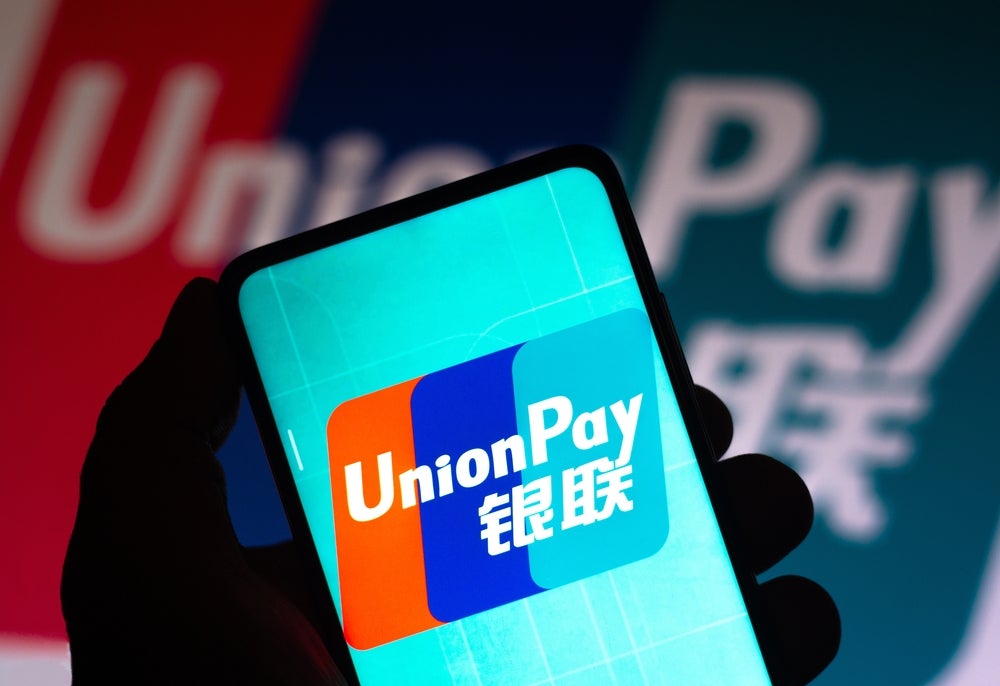REMITTANCES
Western Union triumphs in dispute with
Arizona
A long-running legal battle between Arizona and Western Union has
ended with the US state’s Supreme Court ruling in the remittance
giant’s favour.
The saga began in September 2006 when Arizona’s attorney general,
Terry Goddard, obtained a warrant seeking to seize all Western
Union transfers over $500 sent by anyone in 28 US states to
locations in the Mexican state of Sonora. The objective of the
seizures was to crack down on the illegal transfers federal
investigators estimate earn criminals in Arizona alone between $1.7
billion and $2.5 billion annually in “fees.”
A temporary restraining order blocking the seizures by Goddard
obtained by Western Union was affirmed by the Arizona Superior
Court, which quashed the warrant. However, the state appealed, and
the Court of Appeals reversed the Superior Court decision.
Western Union then appealed to the Arizona Supreme Court, resulting
in the Supreme Court’s ruling in favour of Western Union.
How well do you really know your competitors?
Access the most comprehensive Company Profiles on the market, powered by GlobalData. Save hours of research. Gain competitive edge.

Thank you!
Your download email will arrive shortly
Not ready to buy yet? Download a free sample
We are confident about the unique quality of our Company Profiles. However, we want you to make the most beneficial decision for your business, so we offer a free sample that you can download by submitting the below form
By GlobalDataFollowing the Supreme Court’s decision Western Union commented in a
statement: “This matter involved Western Union protecting the
interest of our consumers. The Arizona Supreme Court found that the
seizure warrant here went too far, exceeding Arizona’s legal
authority and interfering with legitimate transactions by consumers
across the United States.”
MOBILE BANKING
Rapid growth predicted for US mobile banking
Mobile banking in the US has a bright future believes consultancy
TowerGroup, which predicts that 2009 will be the pivotal year in
which it turns from a niche channel into a mainstream channel for
consumer banking.
Highlighting its optimism TowerGroup forecasts that mobile banking
usage will grow from 10 million active users in 2009 to over 53
million active users in 2013, representing a CAGR of 51.8 percent.
There are currently some 260 million mobile phone subscribers in
the US, or about 85 percent of the total population.
Commenting on the forecast an analyst in TowerGroup’s Emerging
Technologies practice Charul Vyas said: “The ubiquity of mobile
devices, coupled with customers’ craving for information on the go,
is creating the perfect opportunity for banks to extend the reach
of their banking services using the most personal possession for
consumers – the mobile phone.”
ALTERNATE PAYMENTS
Emirates Airline partners with GlobalCollect
Dutch online payments processor GlobalCollect has gained another
high-profile client with its appointment by Emirates Airline as its
provider of alternative payment solutions for bookings.
Commenting on GlobalCollect’s selection, Emirates’ senior
vice-president, commercial operations worldwide, Richard Vaughan
said: “Emirates selected GlobalCollect as an additional payment
service provider because of the wide range of payment options it
provides and the geographical spread of markets it supports.”
Initially Emirates’ customers in 37 countries can select from a
range of payment methods hosted by GlobalCollect, including local
credit and debit cards, local bank transfers, real-time bank
transfers, direct debits, PayPal and a cash-based option Western
Union’s Quick Pay. Further countries and payment products are to be
added.
In 2008, Dubai-based Emirates ranked as the world’s eighth-largest
airline in terms of international passengers carried and
fifth-largest in terms of scheduled international
passenger-kilometres flown.
In the airline industry Emirates joins a number of other airlines
using GlobalCollect’s online payments service including KLM, LAN
Airlines and Air China.
GlobalCollect has since 2007 been a wholly-owned subsidiary of US
private equity firm General Atlantic.
MERGERS AND ACQUISITIONS
MoneyGram exits payments processing
Marking its exit from the US payments processing market, MoneyGram
is to sell its wholly-owned subsidiary Financial Services
Management Corporation (FSMC) to privately-owned payments processor
Solutran for an undisclosed sum.
Sale of FSMC, noted MoneyGram, reinforces its strategy of focusing
on profitable money transfer and bill payment businesses.
“This is a coming home of sorts for FSMC,” commented Solutran’s
president and CEO Barry Nordstrand. “FSMC was founded by Elloyd
Hauser who also started Solutran. These two organisations are a
strategic fit and will create significant synergy.”
Founded in 1984 Solutran’s key markets include direct marketing
companies, non-profit organisations, publishers, retailers and
grocers.
FSMC provides disbursement processing services to corporations,
fulfilment companies and government agencies and contributes less
than 1 percent of MoneyGram’s total revenue.
ATMs
NCR brings ATM production in-house
NCR Corporation is to bring production of ATMs for the North
American market back in-house. The move is part of NCR’s strategy
that includes shifting its global headquarters from Dayton, Ohio to
Columbus, Georgia and concentration of all research and development
in a single centre.
“The decision to consolidate functions in Georgia and build a
technology-focused corporate headquarters campus is right in line
with our business strategy to drive growth, improve our innovation
output, increase productivity and continually upgrade our focus on
the customer,” said Bill Nuti, NCR’s chairman and CEO.
NCR outsourced ATM production in North America to Solectron, a unit
of US technology equipment manufacturer Flextronics, following
closure of its Canadian manufacturing plant in 2007.
INDUSTRY TRENDS
Legislation will change US payment
preferences
Signed into US federal law by President Obama in May, the Credit
Card Accountability, Responsibility and Disclosure Act will have a
far reaching impact on consumer payment preferences predicts
Western Union.
The money transfer company based its view on the findings of a
survey conducted subsequent to the act’s passing which revealed
that as the act is implemented businesses can expect to witness a
change in consumer spending, with cash and pre-paid cards becoming
a more desirable option.
In the survey Western Union found that in the wake of the financial
crisis many consumers view cash as a better way than credit cards
to control spending and avoid accumulating debt. Notably, 27
percent of respondents reported already using cash more often than
in the past.
However, the survey also revealed that despite cash’s perceived
advantages 66 percent of those surveyed highlighted their inability
to make online purchases.
The prepaid debit card provides an ideal solution to the online
shopping problem believes Western Union, which is backing its view
with the launch of the Western Union MoneyWise Visa Pre-Paid Card
now being piloted in two US cities. As a marketing strategy Western
Union offers overnight delivery of the reloadable card at a fee of
$9.95.
MOBILE BANKING
Monitise reports big jump in service uptake
Things are looking up for UK mobile banking technology developer
Monitise, which reports that a record 100,000 new customers
registered for its services offered by financial institutions in
the UK and US in June. This was up from about 40,000 customer
registrations per month reported by Monitise in its interim
financial statement published in February 2009.
“Despite a tough year, we are now delighted with the number of
people who are signing up to our services and this will help us
reach our goal of one million customers in 2009,” commented
Monitise’s CEO Alastair Lukies. “These figures indicate that a
growing number of people are using our innovative services to
manage their money from their handset. As we extend our services
and more parties join our ecosystem, we look forward to seeing more
people joining our platform.”
In the six months to 31 December 2008, Monitise reported total
revenue of £1.1 million ($1.8 million), up from £392,000 in the
first half of the 2007/08 financial year, and a net loss of £6.4
million, down from a net loss of £7 million. Monitise, which was
founded in 2003, forecasts that it will achieve monthly cash
breakeven during its 2011 financial year.
SECURITY
HSBC and SAS extend joint anti-fraud effort
Extending an already successful partnership, UK bank HSBC has
selected US software developer’s SAS Fraud Management (SFM) as its
principal solution for fraud management across its global network
encompassing 100 million customers in 86 countries and
territories.
The product of joint development effort by SAS and HSBC, the SFM
real-time credit card and debit card fraud detection system was
launched by HSBC in October 2007 with the initial deployment in the
US.
Deployment was subsequently extended to include HSBC’s operations
in Europe, Hong Kong, the Philippines, Singapore, Thailand, Macau,
Brunei and Sri Lanka.
Evolution of the SFM solution continues with HSBC and SAS working
together to expand its capabilities beyond protecting against
credit and debit card fraud to provide a comprehensive approach to
combating fraud across multiple lines of business and channels.
According to HSBC these enhanced capabilities will enable it to
monitor activity at the customer, account and channel level.
Commenting on the extended relationship with SAS, Derek Wylde,
HSBC’s head of group fraud risk, said: “We are keen to continue our
investment with SAS having seen success with SAS Fraud Management
in credit and debit card fraud protection and experiencing SAS’
flexible and innovative approach to fighting fraud.”
REMITTANCES
Recession takes its toll on Latin America
Falling victim to global economic turmoil, remittances to Latin
America and the Caribbean are under pressure with US-based
not-for-profit organisation Inter-American Dialogue (IAD)
predicting a 7 percent fall to $64 billion in 2009 from $69 billion
in 2008, a year which saw a marginal increase of 0.9 percent.
IAD’s research found that in 2008, migrants relied on their savings
in order to maintain a sustained level of remittances to their
families. However, in 2009 IAD predicts that the number of migrants
remitting will fall by nearly 1 million, with only 40 percent of
those unemployed will continue to remit and 25 percent of those
employed will remit 10 percent less than in 2008.
Data from Mexico indicates that IAD’s forecast could be optimistic.
According to Mexico’s central bank, inbound remittances slumped by
19 percent year-on-year in April to $1.7 billion. This was the
largest fall in inbound remittances recorded by Mexico and followed
a 3.6 percent fall in 2008 to $16 billion.
The Latin America/Caribbean region relies on the US for almost 80
percent of its inbound remittances according to the World
Bank.
PAYMENTS PROCESSING
Absa sells controlling interest in microfinance payments
processor
Absa, Barclays Bank’s South African banking subsidiary, has sold a
50 percent plus one share controlling stake in its microfinance
payments processing unit NuPay to South African electronics
conglomerate Altech for ZAR53.5 million ($7 million).
“The acquisition allows Altech to supply the switching services,
POS devices and related software, as well as provide ongoing
maintenance and support to NuPay, which boasts the largest number
of installed POS terminals in South Africa outside of the banking
industry,” said Altech CEO, Craig Venter.
He added that NuPay processes over 500,000 successful transactions
per month, via some 2,800 POS systems. Transactions will continue
to be acquired by Absa.
NuPay was formed 10 years ago after the Usury Act of 1968 was
changed to prohibit microlenders from retaining borrowers’ bank
cards and PIN codes as security for payment.
This legislative change provided an opportunity for increased
banking automation in the area of loan repayments with a resultant
reduction in bad debt experience.
ATMs
Nautilus and Triton terminate deal
A pending deal that would have seen Korean ATM manufacturer
Nautilus Hyosung acquire a major US rival Triton Systems for $63
million has been called off. The deal was first announced in July
2008.
Both parties cited as the reason for terminating the deal
difficulties related to the potential impact of the deal on market
competition being encountered in negotiations with the US
Department of Justice (DOJ). The DOJ did not rule on the proposed
deal.
Triton, a subsidiary of US engineering and technology conglomerate
Dover Corporation, ranks as the world’s fourth-largest ATM
manufacturer and the largest provider of off-premises ATMs in North
America.
PAYMENTS PROCESSING
World Bank support for Vietnamese processor
Electronic payments in Vietnam have received a boost from World
Bank agency the International Finance Corporation (IFC) which is to
invest $1.2 million in retail payments processor VinaPaynet
Network.
“This investment is crucial in supporting our company’s strategic
growth,” said Paynet’s chairman, Ngo Thanh Son. “As the retail
payment processing sector is just emerging in Vietnam and there is
a huge need for international know-how and expertise, IFC’s global
presence and knowledge of different business models and
technological trends are greatly valued.”
Launched in April 2007 VinaPaynet enables consumers to undertake
transaction such as bill payments, mobile phone top ups and money
transfers via ATMs, electronic POS and bank branch terminals.
VinaPaynet’s services have recently expanded to include online and
mobile phone transactions.
SECURITY
Heartland on encryption security offensive
Hit by a data breach that led to its temporary suspension from Visa
and MasterCard’s lists of Payment Card Industry Data Security
Standard (PCI DSS) compliant processors Heartland Payment Systems
vowed to implement security that would go beyond that achievable
under the PCI DSS standard.
Heartland, the US’ sixth-largest payments processor, believes the
solution lies in data encryption and to that end is partnering with
encryption specialist Voltage Security to develop end-to-end
encryption software specifically suited to payments processing. The
solution has been named Heartland E3.
“Heartland is developing a complete end-to-end encryption solution
designed to protect cardholder data at all stages of a transaction
– from card swipe through delivery to the card brands,” said
Heartland’s chairman and CEO Bob Carr. “Together with Voltage, we
are developing a comprehensive solution that currently does not
exist.”
Voltage Security’s president and CEO Sathvik Krishnamurthy
commented that with E3, risk of a data breach will be
“dramatically” reduced. He added that as a result of this merchants
will be able to significantly reduce the scope of their PCI DSS
audit scope and compliance costs
Heartland intends to launch an E3 pilot in the third quarter of
2009 and add additional features and products during 2010.
MERGERS AND ACQUISITIONS
Ingenico deal boosts BBS’ Nordic standing
In a move aimed at consolidating its position in the Nordic region,
Norway-based payments services and technology company BBS has
acquired French electronic POS specialist Ingenico’s Norwegian and
Finnish units. No financial details were released.
Commenting on the deal, BBS CEO Ola Forberg said acquisition of the
units – Sagem Denmark and its subsidiary Sagem Manison Finland –
fulfilled BBS’ ambition to become the leading developer and
provider of merchant solutions within the areas of payment and
information solutions in the Nordic market.
Acquisition of Ingenico’s Norwegian and Finnish units provides BBS
with a presence in all Nordic countries except Iceland.
BBS gained access to Sweden following acquisition of Ingenico’s
unit in that country in 2006.
Nordic bank consortium BBS has in recent years set out to diversify
away from its long-standing role as provider of a common
operational payment infrastructure in Norway.
In 2008 BBS reported a turnover of NOK1.7 billion ($265 million)
and that it had processed 1.5 billion transactions valued at a
total of NOK61,763 billion.
SECURITY
War on fraud being lost warns TowerGroup
The US financial services industry has lost the battle to secure
personally identifiable information (PII), declares consultancy
TowerGroup in a new study.
Study author George Tubin noted that despite significant media
attention, increased state legislative demands, negative customer
reaction and costs associated with PII breaches, millions of
customer data records continue to be lost or stolen.
On a positive note Tubin said: “While the battle to protect data
has been lost so far, TowerGroup firmly believes that the war can
be won.”
To curb fraudulent use of compromised PII, TowerGroup urged
financial institutions to assume that information such as client
name, social security number, address, telephone number, birth date
and account balance are useless authentication factors.
Instead, the consultancy recommends that knowledge-based
authentication and one-time passwords delivered via mobile short
messaging service be considered.
TowerGroup also recommends implementing an integrated,
cross-channel fraud prevention strategy that detects and diagnoses
possible use of fraudulently obtained PII in real time.
To back enhanced security measures TowerGroup urged regulators to
implement data breach prevention requirements and penalties that
compel businesses to protect data.
“Until legislative and regulatory bodies implement these penalties,
data loss incidents will persist and worsen,” warned
TowerGroup.
COMPANIES
Accel Partners puts its weight behind
enStage
In a vote of confidence in its potential, enStage – a start-up
company focused on payments solutions for developing markets – has
attracted one of the world’s leading venture capital firms, Accel
Partners, as a new investor.
Headquartered in the US and with development and processing
operations in Bangalore, enStage’s products include solutions for
payment gateways, mobile payments, interactive voice response
payments and e-commerce authentication.
Among enStage’s successes is NetSafe, an online payments solution
adopted by Indian Bank HDFC Bank, that enables customers to create
a virtual card with a one-time-use number from an HDFC Bank
MasterCard or Visa credit or debit card number.
The number is used when shopping online, obviating the need to
reveal sensitive card details.
Commenting, Accel partner Subrata Mitra said: “enStage has not only
developed unique payment products, but has also established itself
as a market leader in India. It is rapidly becoming a leading
provider of infrastructure services in electronic payments.”
MOBILE PAYMENTS
Celcom pioneers USSD in Asia-Pacific region
Malaysian mobile network operator (MNO) Celcom has launched
AirCash, a mobile payments service believed to be the first in the
Asia Pacific region utilising unstructured supplementary service
data (USSD) technology. The service is available to Celcom’s 9
million customers.
USSD is similar in concept to short message service (SMS) solutions
but has the advantage of enabling a real-time interactive data
session between customer and service provider.
Technology for the AirCash service was supplied by US mobile
messaging services specialist Sybase’s mobile payments unit Sybase
365.
The service enables users to transfer money to other AirCash users,
remit money to foreign countries (initially Indonesia), top-up
mobile airtime for themselves and others and add or withdraw money
from their AirCash account at Celcom dealers.
Commenting on the launch, Celcom’s head of business innovation
Kevin Henry said the company anticipated that the cross border
remittance feature will have strong appeal, particularly to
Malaysia’s migrant population seeking a secure, instant and cost
effective way to send money home.
Celcom is a unit of Malaysia’s largest telecommunications company
Axiata Group which also has MNO units in Bangladesh, Cambodia,
India, Indonesia, Iran, Pakistan, Singapore and Sri Lanka serving a
total of some 36 million subscribers.







